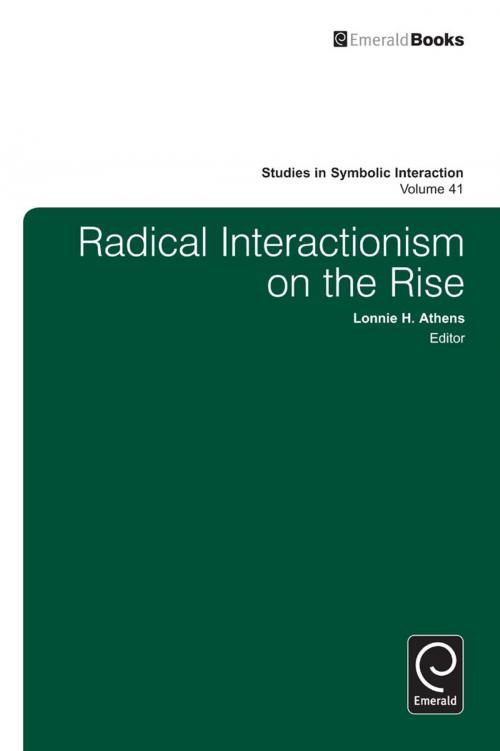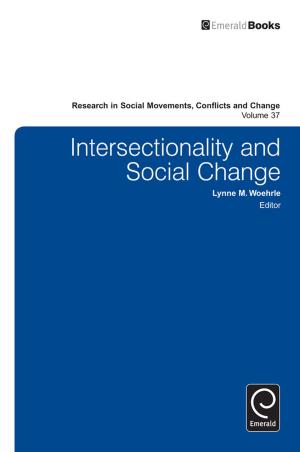| Author: | ISBN: | 9781781907856 | |
| Publisher: | Emerald Group Publishing Limited | Publication: | October 28, 2013 |
| Imprint: | Emerald Group Publishing Limited | Language: | English |
| Author: | |
| ISBN: | 9781781907856 |
| Publisher: | Emerald Group Publishing Limited |
| Publication: | October 28, 2013 |
| Imprint: | Emerald Group Publishing Limited |
| Language: | English |
This issue focuses on "radical interactionism," which recent emergence as an alternative perspective to conventional symbolic interactionism has sparked fierce debate in both North America and Europe. Lonnie Athens discusses the four fundamental differences between radical and conventional symbolic interactionism. The prominent scholars compare the relative insights offered not only between radical interactionism and symbolic interactionism, but between radical interactionism and feminism, dramaturgy, critical studies, and neo-pragmatism. Without exception, they found the radical interactionism revealed new and formidable insights that improved our general understanding of human group life and critical problems that arise during it. While some contributors believe that radical interactionism marks the development of a new and more vibrant form of interactionism which in due time will replace its much older and more conservative cousin, others believe that it only signals the need for traditional interactionists to finally start making some much-needed modifications in symbolic interactionism if they wish it to remain a viable sociological perspective in the 21st century.
This issue focuses on "radical interactionism," which recent emergence as an alternative perspective to conventional symbolic interactionism has sparked fierce debate in both North America and Europe. Lonnie Athens discusses the four fundamental differences between radical and conventional symbolic interactionism. The prominent scholars compare the relative insights offered not only between radical interactionism and symbolic interactionism, but between radical interactionism and feminism, dramaturgy, critical studies, and neo-pragmatism. Without exception, they found the radical interactionism revealed new and formidable insights that improved our general understanding of human group life and critical problems that arise during it. While some contributors believe that radical interactionism marks the development of a new and more vibrant form of interactionism which in due time will replace its much older and more conservative cousin, others believe that it only signals the need for traditional interactionists to finally start making some much-needed modifications in symbolic interactionism if they wish it to remain a viable sociological perspective in the 21st century.















